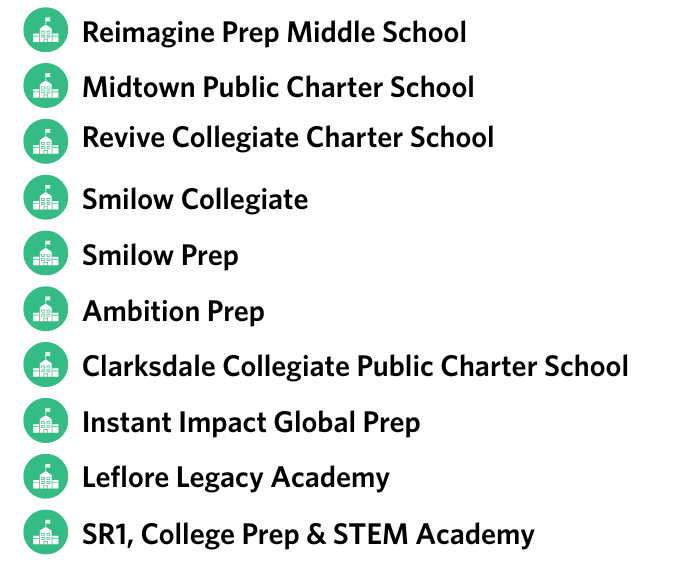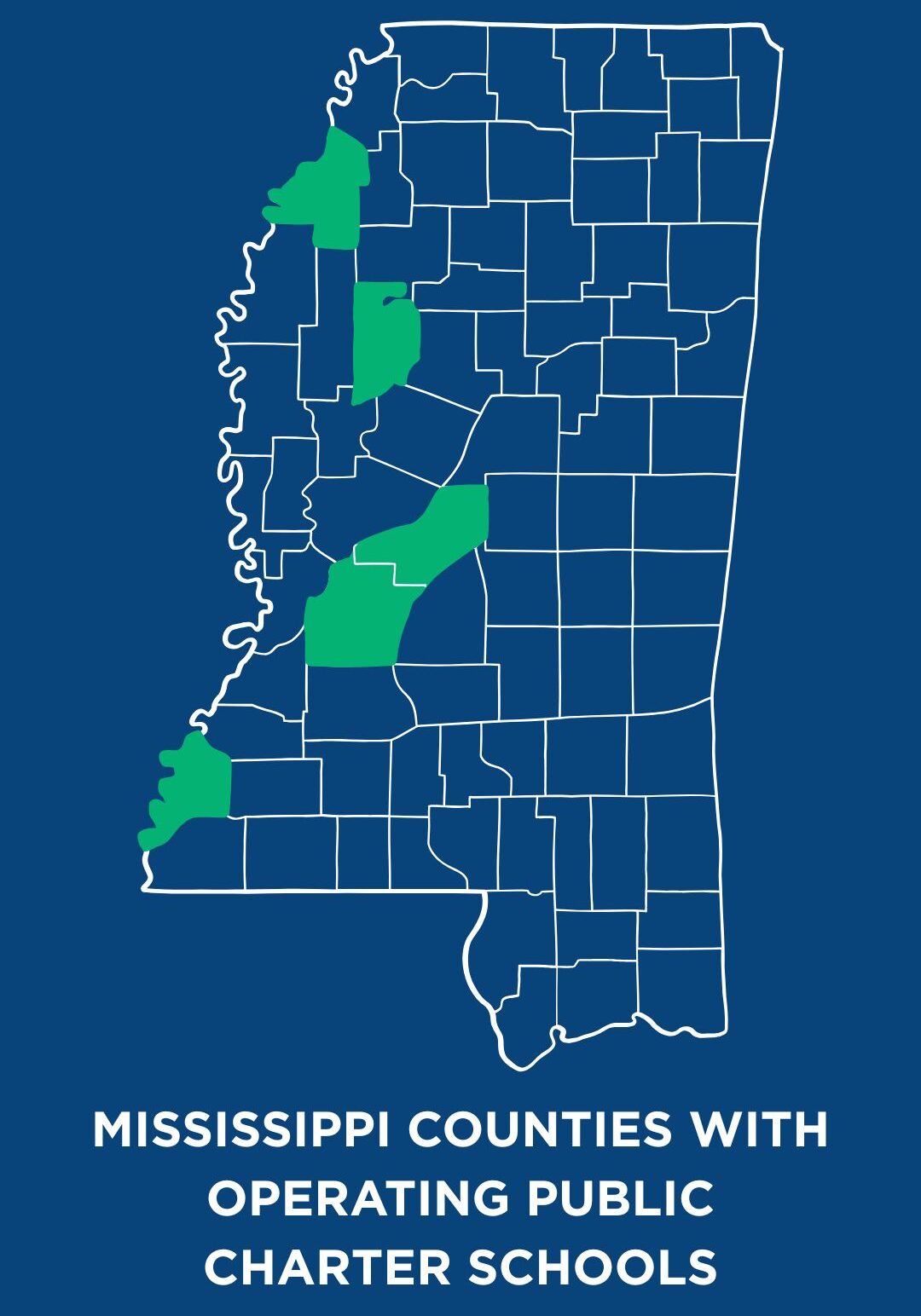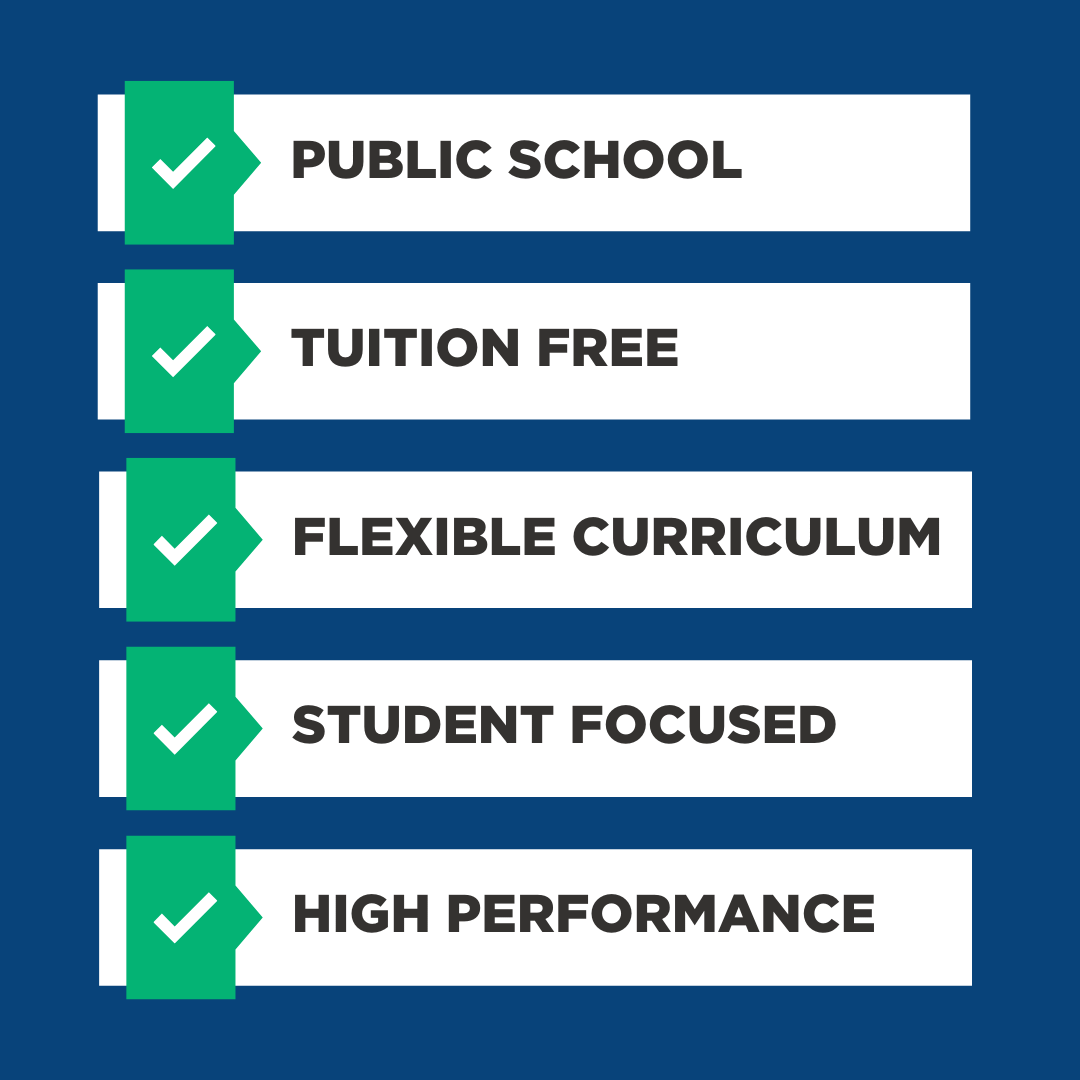
Every student in Mississippi deserves the tools to shape their own future.
Public charter schools are helping them do just that.
What Are Public Charter Schools?
Who Can Attend A Charter School In Mississippi?
Charter schools in Mississippi are public, tuition-free, and open to all students.
Eligibility:
-
Students must live in a district rated C, D, or F by the state.
-
Must be Mississippi residents.
-
No entrance exams or tuition required. If seats are limited, a public lottery is held.
How Are Public Charter Schools Helping Families?
They give families access to more high-quality public school options—especially where traditional schools are not meeting their child's needs.
They help close opportunity gaps by welcoming all students regardless of zip code, qualifications, or household income.
The Challenge
Only 10 charter schools operate in Mississippi, so many students lack this option. Families want more choices, and charter schools have proven results. Expanding access will help more students find schools that fit their needs.
10 Schools for an Entire State Isn’t Enough.
Charter schools are helping students succeed, but they’re available in just a handful of communities across Mississippi.


Myth vs. Fact
Fact: Charter schools in Mississippi are public schools. They are tuition-free, open to all students, and funded by taxpayers — just like traditional public schools. The key difference is that they operate independently from local school districts, which gives them more flexibility to innovate and focus on what works best for their students.
Fact: Mississippi law clearly defines charter schools as public schools. They are held to the same federal civil rights protections and public accountability as traditional public schools and must serve all students who apply, regardless of background or ability.
Fact: Mississippi charter schools must accept all students who apply. If applications exceed available seats, they are required by law to use a public, random lottery to determine enrollment. There are no entrance exams, academic screening, or preference based on race, disability, or athletic ability.
Fact: In many ways, they are more accountable than traditional public schools. Mississippi charter schools must meet strict academic, financial, and operational standards. They are monitored by the Mississippi Charter School Authorizer Board and undergo annual performance reviews. If they fail, they can be closed, unlike traditional public schools.
Fact: Mississippi charter schools are required to serve all students. In fact, many charter schools provide smaller class sizes and targeted supports that benefit students with additional needs.
Fact: In 2023-24 school year, all but one of Mississippi’s charter schools outperformed equivalent schools in their local district. Moreover, Mississippi charter schools are helping close the achievement gap—particularly for students who were previously underserved. State data shows that students in charter schools are making meaningful academic gains in reading and math, especially in communities where traditional outcomes have historically been low.
Fact: 75% of Mississippi charter school teachers must be licensed, and the rest must have subject-matter competency and meet other requirements. Many charter schools also give teachers more autonomy and more leadership opportunities to help tailor instruction to student needs.
How do Public Charter School Lotteries Work in Mississippi?
What to know about enrollment, selection, and waitlists for Mississippi’s public charter schools
Charter schools in Mississippi are public and tuition-free, open to all students within designated zones—no entrance exams required.
A lottery is held if applications exceed available seats, using a fair, random process outlined in each school’s admissions policy.
Priority groups (like siblings or staff children) may be placed first, but all other applicants are selected randomly.
Students not selected in the lottery are placed on a waitlist, which is used to fill open spots throughout the year.
Waitlists don’t roll over, so families must reapply each year if their child isn't admitted.
